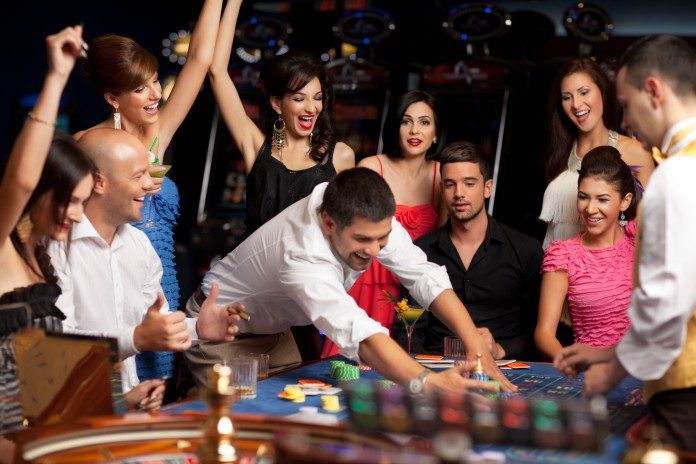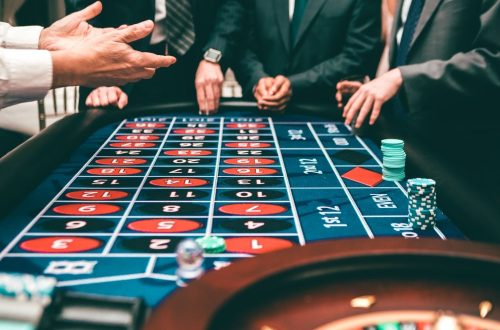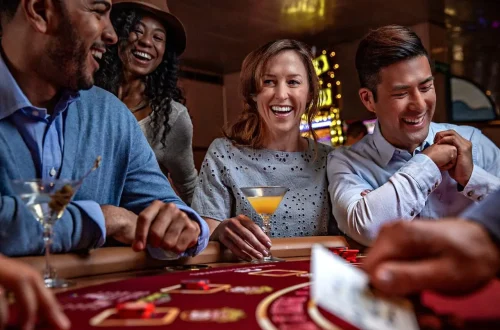
When Losing in Casinos is Comfortable: The Phenomenon of Voluntary Defeat
Imagine this scenario: you’ve just lost a bet at an online casino like https://neon-54-casino.gr/, but instead of feeling frustration, disappointment, or regret, you feel oddly comfortable – perhaps even relieved. It sounds counterintuitive, doesn’t it? Losing money should naturally lead to negative emotions. However, a curious phenomenon known as voluntary defeat suggests that sometimes, gamblers subconsciously or even consciously prefer losing.
This article delves deeply into this paradoxical behavior, exploring why and how losing can become psychologically comforting, and why certain players repeatedly experience voluntary defeat.
Understanding Voluntary Defeat in Gambling
What Exactly is Voluntary Defeat?
Voluntary defeat occurs when gamblers subconsciously or intentionally place bets expecting or even hoping to lose. Although seemingly irrational, this behavior serves deeper psychological needs, such as emotional comfort, release of pressure, or validation of certain beliefs about luck and fate.
Why Would Anyone Want to Lose?
At its core, voluntary defeat often reflects complex emotional states. Players might unconsciously sabotage their own success to affirm deeply-held personal beliefs, or to escape pressures that winning could impose. Paradoxically, losing becomes emotionally easier than confronting the potential stress and responsibility of winning.
Psychological Roots of Voluntary Defeat
Self-Sabotage and Emotional Comfort
Many people subconsciously engage in self-sabotage, not just in gambling but also in other aspects of life. At casinos, self-sabotage might manifest as deliberately risky bets or ignoring sound strategies. This pattern offers emotional comfort because losing aligns with low self-esteem or a belief that one doesn’t deserve success.
Loss as Emotional Validation
Interestingly, repeated losses can validate a gambler’s negative self-perceptions or pessimistic worldview. For players who see themselves as unlucky or undeserving, losing feels comfortable because it confirms their internal narrative. Winning, in contrast, challenges this view, creating uncomfortable cognitive dissonance.
The Comforting Nature of Predictability
Predictability Reduces Anxiety
Humans naturally prefer predictable outcomes, even negative ones. For certain gamblers, the familiar pattern of losing provides psychological safety. At platforms, a consistent pattern of loss offers predictability, reducing anxiety and uncertainty inherent in gambling.
Control Through Predictable Losses
Voluntary defeat provides gamblers an unusual sense of control. If a player subconsciously chooses to lose, they maintain psychological autonomy – even if this choice leads to negative outcomes. This perceived control can be profoundly comforting, despite financial losses.
Emotional Dynamics Behind Comfortable Losses
Relief from the Pressure of Winning
Winning brings expectations and pressure. Success demands responsibility, strategic thinking, and future decisions – stressful prospects for some gamblers. In contrast, losing frees gamblers from these pressures. Players might subconsciously seek losses at casino precisely because losing feels simpler and emotionally less demanding.
Escaping Fear of Success
Surprisingly, fear of success can be as powerful as fear of failure. Players might worry that winning will attract unwanted attention, responsibility, or expectations. Voluntary defeat becomes a subtle mechanism to avoid these potential stressors, making losses paradoxically comfortable.
The Role of Cognitive Biases
Confirmation Bias in Gambling
Confirmation bias significantly influences voluntary defeat. Players subconsciously seek evidence confirming their negative self-beliefs, focusing selectively on losses rather than wins. Casinos offer a fertile ground for this bias, as gamblers repeatedly validate negative self-perceptions through predictable losses.
Gambler’s Fallacy in Reverse
While the gambler’s fallacy typically expects wins after repeated losses, voluntary defeat involves the opposite: subconsciously expecting losses after wins. Players might feel uncomfortable after a winning streak, anticipating negative outcomes as a return to normalcy. Thus, losing becomes psychologically comfortable as it aligns with their internal expectations.
Neurological Factors: Why the Brain Embraces Loss
The Comforting Dopamine Cycle
Dopamine release doesn’t only occur during wins – it also happens in anticipation of gambling itself. Even predictable losses trigger dopamine release, albeit to a lesser extent. Players at casino become conditioned to expect emotional rewards even from losses, making predictable losses oddly satisfying.
Emotional Regulation Through Losses
Gambling losses trigger emotional responses like disappointment or sadness. However, repeatedly experiencing these emotions creates emotional predictability and regulation. Over time, players develop coping mechanisms around these negative feelings, making losses psychologically familiar and manageable, hence comforting.
Social and Environmental Influences
The Social Comfort of Losing
Social environments often unintentionally reinforce voluntary defeat. In communities or social groups that emphasize humility or downplay financial success, gamblers may subconsciously sabotage their success to fit social expectations. Losing thus becomes socially comfortable, preserving group acceptance and identity.
Casino Environment and Loss Normalization
Casinos create environments that normalize losses. Encouraging messages, loyalty bonuses, and comforting visuals subtly imply losses are expected and manageable. These elements reduce negative emotional impact, making voluntary defeat easier and emotionally acceptable.
Risks and Consequences of Voluntary Defeat
Financial Consequences of Comfortable Losses
Repeated voluntary defeats significantly impact financial stability. Players, comfortable with losses, might repeatedly neglect responsible gambling strategies, creating financial strain or debt. Recognizing and addressing voluntary defeat patterns becomes crucial for maintaining financial health.
Emotional and Psychological Risks
While voluntary defeat offers emotional comfort, prolonged exposure risks severe emotional consequences. Persistent self-sabotage and negative self-validation can exacerbate low self-esteem, depression, or anxiety, requiring conscious intervention or professional support.
Recognizing Voluntary Defeat Patterns
Signs You Might Be Experiencing Voluntary Defeat
Identifying voluntary defeat involves recognizing subtle behavioral signs: regularly making irrational bets, consistently ignoring responsible strategies, experiencing unexpected emotional comfort after losses, or feeling anxious after wins. Early recognition helps gamblers proactively address these behaviors.
Emotional Self-Assessment
Regular emotional self-assessments allow gamblers to identify underlying reasons for comfortable losses. Reflecting on self-esteem, beliefs about luck or fate, and emotional responses to wins or losses helps gamblers better understand their voluntary defeat behaviors.
Strategies to Break Voluntary Defeat Patterns
Setting Clear Personal Boundaries
Players should establish strict boundaries around gambling, using deposit limits, session restrictions, and loss thresholds. Responsible gambling tools at platforms offer valuable resources for managing voluntary defeat behaviors proactively.
Cognitive Behavioral Approaches
Cognitive behavioral techniques can address voluntary defeat directly. Challenging negative self-beliefs, reframing cognitive biases, and developing healthier emotional responses to gambling outcomes significantly reduce voluntary defeat tendencies.
How Casino Supports Responsible Gambling
Encouraging Healthy Gambling Habits
Casino actively promotes responsible gambling practices. Transparent communication about gambling risks, responsible gaming education, and robust self-exclusion options help players maintain healthy relationships with gambling, reducing voluntary defeat behaviors.
Offering Emotional and Financial Support Resources
Casino provides essential resources for emotional wellness, responsible gambling, and financial management. Easy access to support networks, counseling services, and educational materials empowers players to address voluntary defeat behaviors effectively.
Personal Stories: Understanding Voluntary Defeat
Emily’s Pattern of Comfortable Losses
Emily, a regular casino player, often felt emotionally relieved after losses. Through emotional reflection, Emily recognized voluntary defeat behaviors stemming from low self-esteem and fear of responsibility associated with winning. Utilizing casino resources and cognitive strategies helped Emily develop healthier gambling habits.
Mike’s Socially-Driven Losses
Mike frequently gambled alongside friends who subtly celebrated humility rather than financial success. Subconsciously, Mike self-sabotaged to maintain social acceptance, making losses socially comfortable. After recognizing this pattern, Mike adjusted his gambling behavior, ensuring healthier emotional and financial outcomes.
Conclusion: Overcoming the Comfort of Losses
Voluntary defeat remains a complex psychological phenomenon, reflecting deep emotional needs, cognitive biases, and social influences. While losing may temporarily feel emotionally comfortable, understanding and addressing underlying motivations ensures gambling remains a healthy, enjoyable experience.
Platforms offer essential resources, supporting players in overcoming voluntary defeat behaviors. Through emotional self-awareness, responsible gambling habits, and proactive strategies, players can confidently enjoy gambling excitement without risking emotional or financial wellbeing.
Ultimately, overcoming voluntary defeat involves actively embracing healthier self-perceptions, emotional responses, and responsible gambling habits. When approached consciously, gambling becomes genuinely rewarding – financially, emotionally, and psychologically – allowing players to confidently pursue genuine success without fear or self-sabotage.



